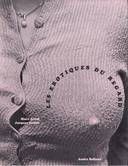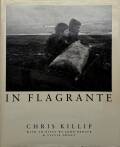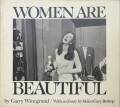Eikoh Hosoe - Man and Woman / Otoko to Onna おとこと女 | 細江英公, Camerart, 1961, Tokyo

Eikoh Hosoe - Man and Woman (Book spine)

Eikoh Hosoe - Man and Woman (Book back)

Eikoh Hosoe - Man and Woman (Book front)

Eikoh Hosoe - Man and Woman (Slipcase front)

Eikoh Hosoe - Man and Woman (Slipcase spine)

Eikoh Hosoe - Man and Woman (Slipcase back)

Sample page 1 for book " Eikoh Hosoe – Man and Woman", josefchladek.com

Sample page 2 for book " Eikoh Hosoe – Man and Woman", josefchladek.com

Sample page 3 for book " Eikoh Hosoe – Man and Woman", josefchladek.com

Sample page 4 for book " Eikoh Hosoe – Man and Woman", josefchladek.com

Sample page 5 for book " Eikoh Hosoe – Man and Woman", josefchladek.com

Sample page 6 for book " Eikoh Hosoe – Man and Woman", josefchladek.com

Sample page 7 for book " Eikoh Hosoe – Man and Woman", josefchladek.com

Sample page 8 for book " Eikoh Hosoe – Man and Woman", josefchladek.com

Sample page 9 for book " Eikoh Hosoe – Man and Woman", josefchladek.com

Sample page 10 for book " Eikoh Hosoe – Man and Woman", josefchladek.com

Sample page 11 for book " Eikoh Hosoe – Man and Woman", josefchladek.com

Sample page 12 for book " Eikoh Hosoe – Man and Woman", josefchladek.com

Sample page 13 for book " Eikoh Hosoe – Man and Woman", josefchladek.com

Sample page 14 for book " Eikoh Hosoe – Man and Woman", josefchladek.com

Sample page 15 for book " Eikoh Hosoe – Man and Woman", josefchladek.com

Sample page 16 for book " Eikoh Hosoe – Man and Woman", josefchladek.com

Sample page 17 for book " Eikoh Hosoe – Man and Woman", josefchladek.com

Sample page 18 for book " Eikoh Hosoe – Man and Woman", josefchladek.com
Other books by Eikoh Hosoe (see all)


Other books tagged Black & White (see all)









Other books tagged Nude (see all)









Other books tagged Ryuichi Heiting Jap. Photobook (see all)









Other books tagged Japanese (see all)









Other books tagged Parr Badger Vol. 1 (see all)









Other books by Camerart (see all)

Books to shop at placartphoto.com
Hardcover with dustjacket in slipcase (with obi), signed. Texts (in Japanese) by Taro Yamamoto, Ed van der Elsken and Tatsuo Fukushima, design by Minoru Araki.
In 1961, "Man and Woman" was published by Camera Art (text: Tatsuo Fukushima, Ed van der Elsken, Poetry: Taro Yamamoto). The title of this book seems very suggestive: man was written in hiragana (traditional Japanese writing) and woman in Kanji (Chinese character). Man sounds sexually powerful and positive, subjective, primitive and woman seems sensuous, objective, rational. Hosoe asked his friend, Tatsumi Hijikata to be a male model of this book. They had been friends since Hosoe observed Hijikata's stage, "Kinjiki" in 1959. (Kinjiki was based on the novel written by Yukio Mishima).
"Man and Woman" showed a man and woman in the very dark background and it was made as if he creatively captured each movement at the stage.. His photography is all black and white and main figures are just a man and woman. The plots are pretty simple, although it certainly remains strong in one's hearts and eyes. To move one's feelings, artist's pure and strong passion must be more important than any technical sophistication and complication or radical use of images. (Miwa Susuda)
Pages: 64
Place: Tokyo
Year: 1961
Publisher: Camerart
Size: 19 x 25 cm (approx.)
Included in "The Japanese Photobook, 1912–1990" by Kaneko Ryuichi & Manfred Heiting
>> see more picks from that book


























